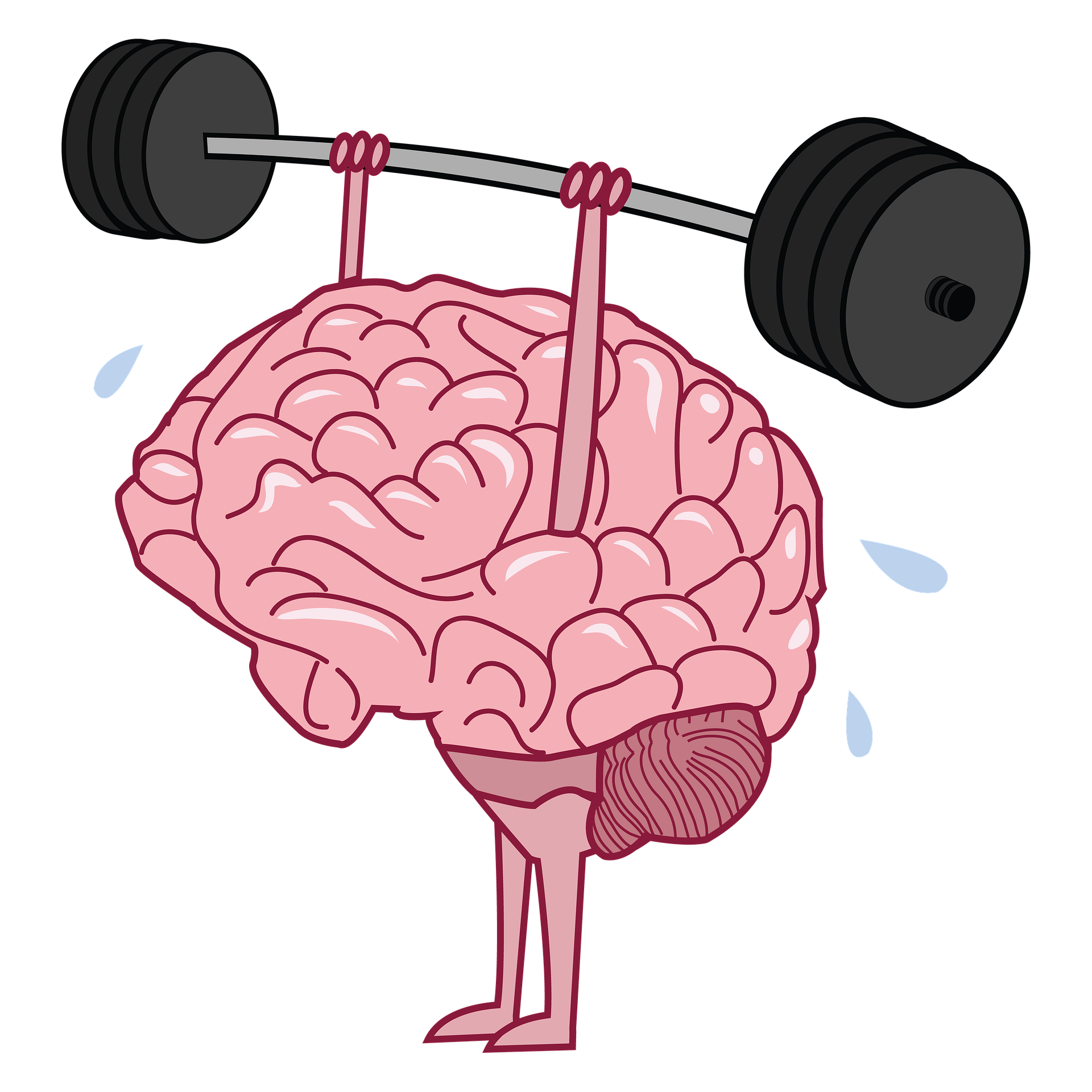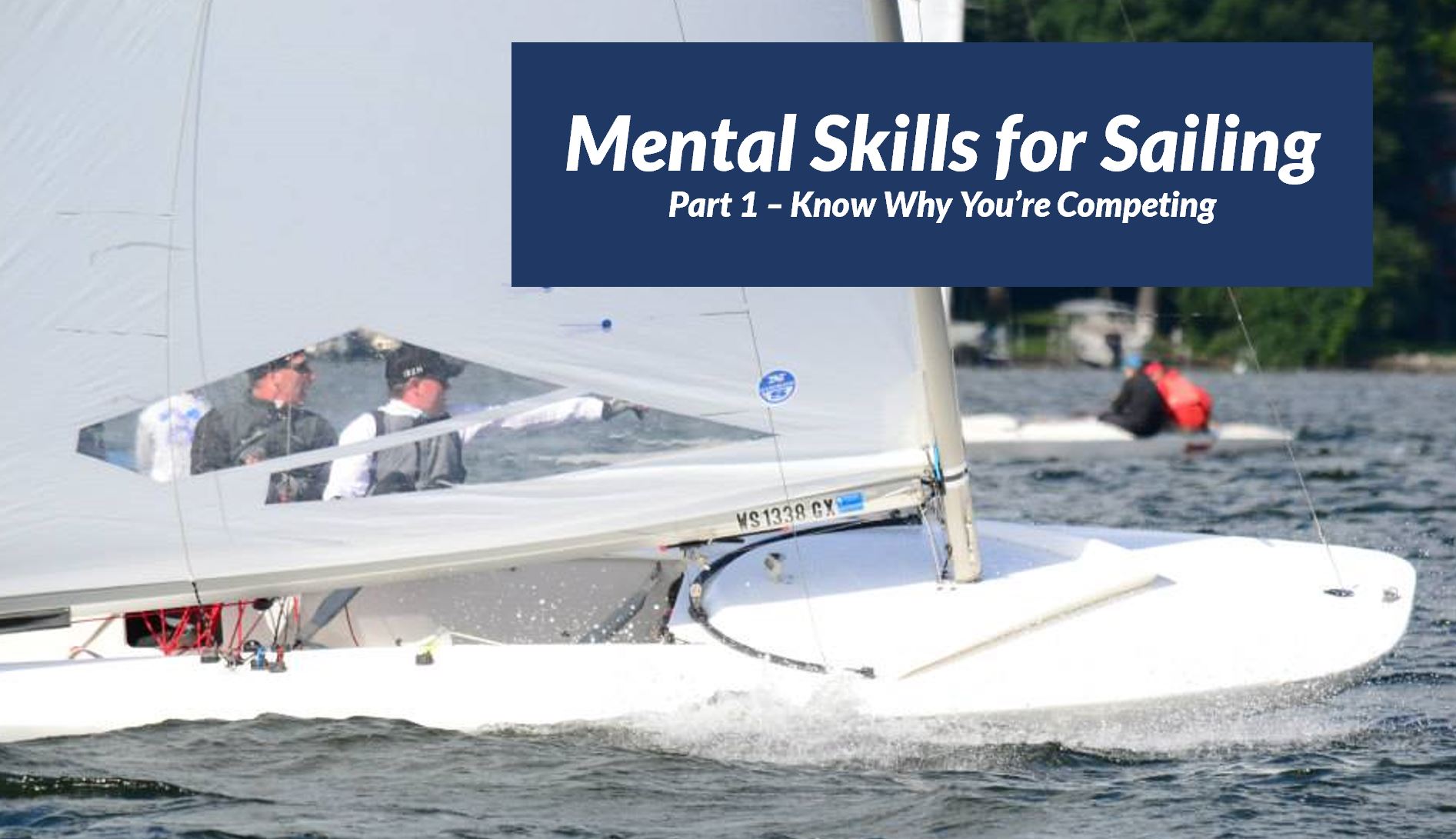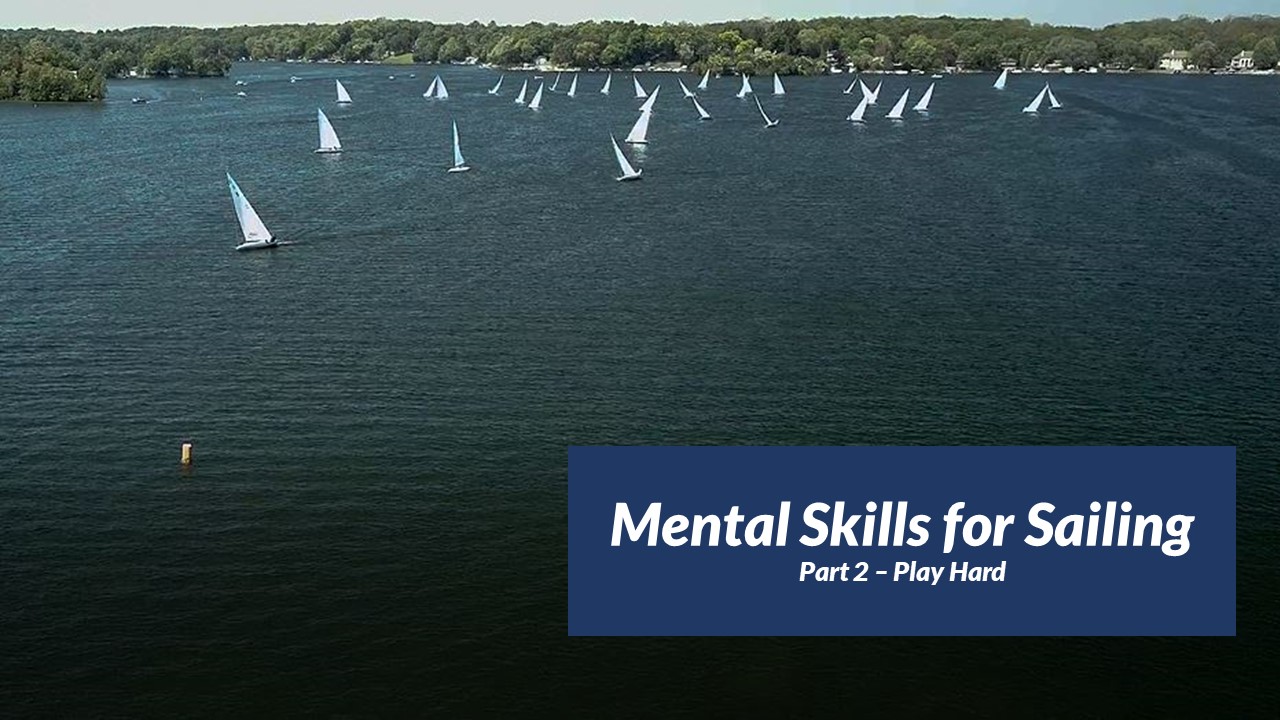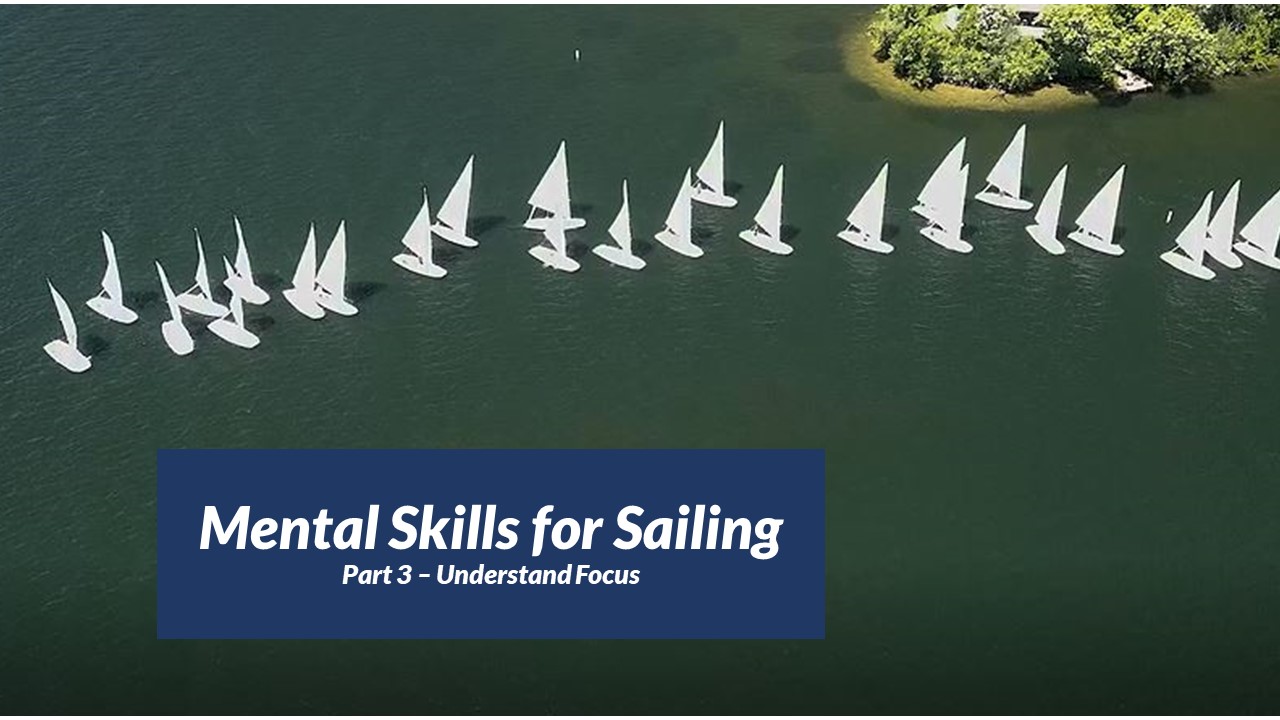In several posts, we’ve claimed that top sailors tend to remember racing scenarios in more detail than average sailors. We decided to explore this further by reviewing sources on the importance of memory in performance.
The Importance of Memory in Performance
In short, we learned the following:
- Our “working memory” is essential for good performance. The more task-relevant information we can hold in working memory, the better we perform.
- Working memory also helps you remember scenarios after the event. There are plenty of anecdotes about professional athletes remembering scenarios.
- Expert performers maximize their working memory in two ways: 1) Basic skills become automatic via practice, which frees up memory for more complex tasks. 2) Complex tasks and scenarios get “chunked” into meaningful units, increasing working memory capacity.
- The ability to remember scenarios may depend on the pace of the game. Golfers, for instance, may be able to remember more about a round than hockey players.
Can You Train Your Working Memory?
Yes and No. Experiments with training working memory on random tasks have not shown lasting improvement. However, when the training is task specific and based on building deeper knowledge, the resuts are more promising.
In any case, the training process is slow since you must make basic tasks automatic and learn to chunk complex tasks. The best ways are:
- Practice – to make basic tasks automatic.
- Compete – to build a reservoir of complex scenarios. The more things you see, the more resources your memory can draw on.
- Understand – observe races (your own and others). Focus on understanding the chunks that were successful, rather than any individual element.
- Retain – some scenarios will be vivid and will remain in your memory. In other cases, you will have to log them in a journal.
Start Small and Expand
In sailing, you may have a better chance at success if you begin with chunks that are either shorter in duration or for which the sequence of skills is relatively clear. Here are two examples
Starts
Starts are complex, but the ingredients of a good start are well-defined. After the race, try to remember the following:
- How far from the line at were you at 1 minute, 30 sec, 15 sec?
- Did you have runway to accelerate?
- Who was next to you on either side? Where was your boat positioned relative to them? Bow ahead/behind? Gap to leeward?
- When did you accelerate compared to those next to you?
- Did any last second wind shifts affect the start?
- Were you set up to sail fast before the starting signal? Did you cross the line with speed?
Small Portions of a Leg
Observe boats that you are relatively even with for part of a leg. Start with boats that are nearby. Then expand to boats that are further away, but still relatively even.
- Did you pass them or did you get passed? Why?
- More breeze
- Lifted tack?
- Sailing faster? Better trim, angle of heel, pinching or footing, hiking or not?
- Picked up a shift?
- Clear air?
- If you crossed them at some point, which boat came out ahead 30 sec to one minute later?
Write down your conclusions. Don’t settle for half answers. Ask someone that was involved if you can’t figure it out.
Related Content
Tactical Intelligence: Manage Your Thought Process – Roble/Shea Sailing
Seven Reasons to Keep a Sailing Notebook – SailZing
Should Athletes Train Their Memories? Analysis of memory in sport, from Pacific Standard. Nice anecdote about LeBron James’ memory.
Memory and Sport – review of memory structures and application to sports performance
Brain Training Is a Good Idea That Didn’t Work – Psychology Today





